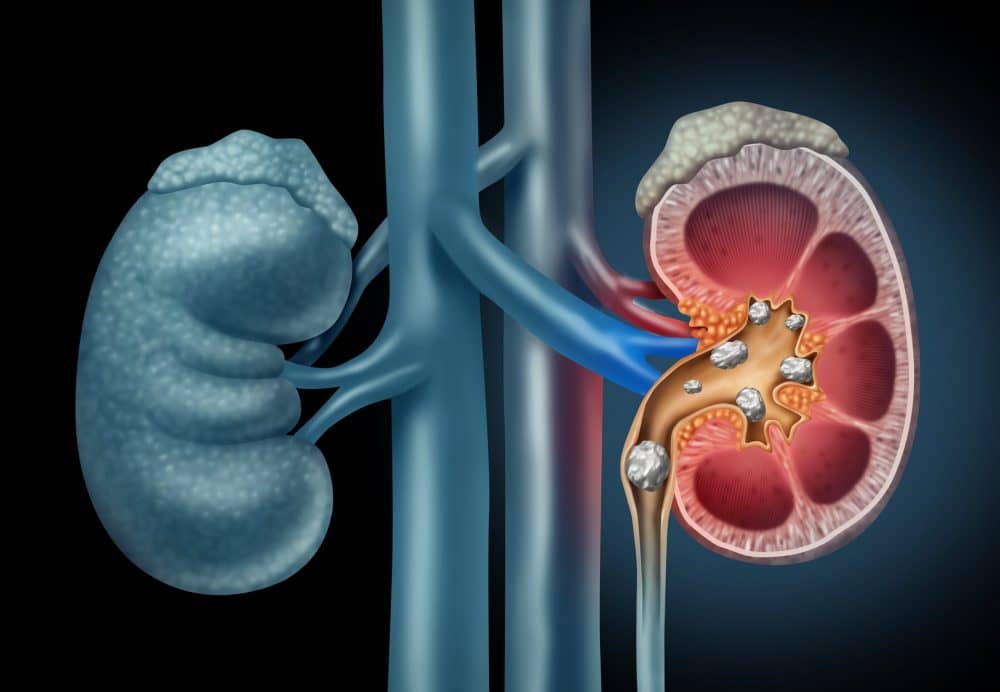Kidney stones affect 10-20% of people at some point in their life. Some patients may experience one kidney stone and never have a recurrence, but some people may have factors that predispose them to form future stones.
When to See a Doctor for Kidney Stones
It may not be necessary to see a nephrologist with a single episode of kidney stones. However, a person who has had recurrent kidney stones would be recommended to have an evaluation by a nephrologist. A nephrologist can identify risk factors posing the increased risk for kidney stone formation and can provide specific dietary recommendations and medications if needed to decrease future risk.
Risks Associated with Kidney Stones
Even with normal kidney function, recurrent episodes of kidney stones pose a risk to otherwise healthy kidneys by leading to a chronic inflammatory process. A kidney stone, being a foreign body to the urinary tract, also poses an increased risk for infection, which may be quite severe if the bacteria enters the bloodstream. Additionally, kidney stones frequently cause substantial pain located in the back or down the sides of your abdomen and can radiate to the groin. The pain is commonly associated with nausea, vomiting, and hematuria (blood in the urine).
Sometimes a stone is so large that it may become lodged along the urinary tract and obstruct the urine from flowing out of the kidney. This poses a significant risk to the function of the kidney. In this situation, we ask the urologist, the surgically trained physician of the kidney, to physically remove the stone, break up the stone and/or place a temporary stent within the ureter to allow the kidney to continue to function.
Types of Kidney Stones
There are several different types of stones. Up to 80% of kidney stones are calcium-based stones, primarily calcium oxalate and, to a much lesser extent, calcium phosphate. Other types may contain uric acid, cystine, or struvite. It is helpful to obtain the stone so that it can be sent to the lab for analysis to determine the exact composition of the stone. Knowing the specific composition allows for a more tailored prevention strategy.
Causes of Kidney Stones
There are certain factors that may predispose a person to have repeated kidney stones. A collection of urine for 24 hours can help determine these factors. If there is too much calcium, uric acid, or oxalate in the urine, then these substances can precipitate or form a solid compound, which may grow larger as more of that substance deposits. Reduced flow of urine from inadequate water intake also makes it more likely for these substances to deposit.
We recommend an adequate amount of water intake, which would be between 2-3 liters per day. These substances may be more likely to form a stone if there is not enough citrate in the urine, and this can be addressed by taking a supplement and altering your diet. Depending on the specific risk factors, your nephrologist can cater the regimen for stone prevention to your personal risk factor profile.
For more information please visit https://www.kidney.org/content/understanding-kidney-stones


